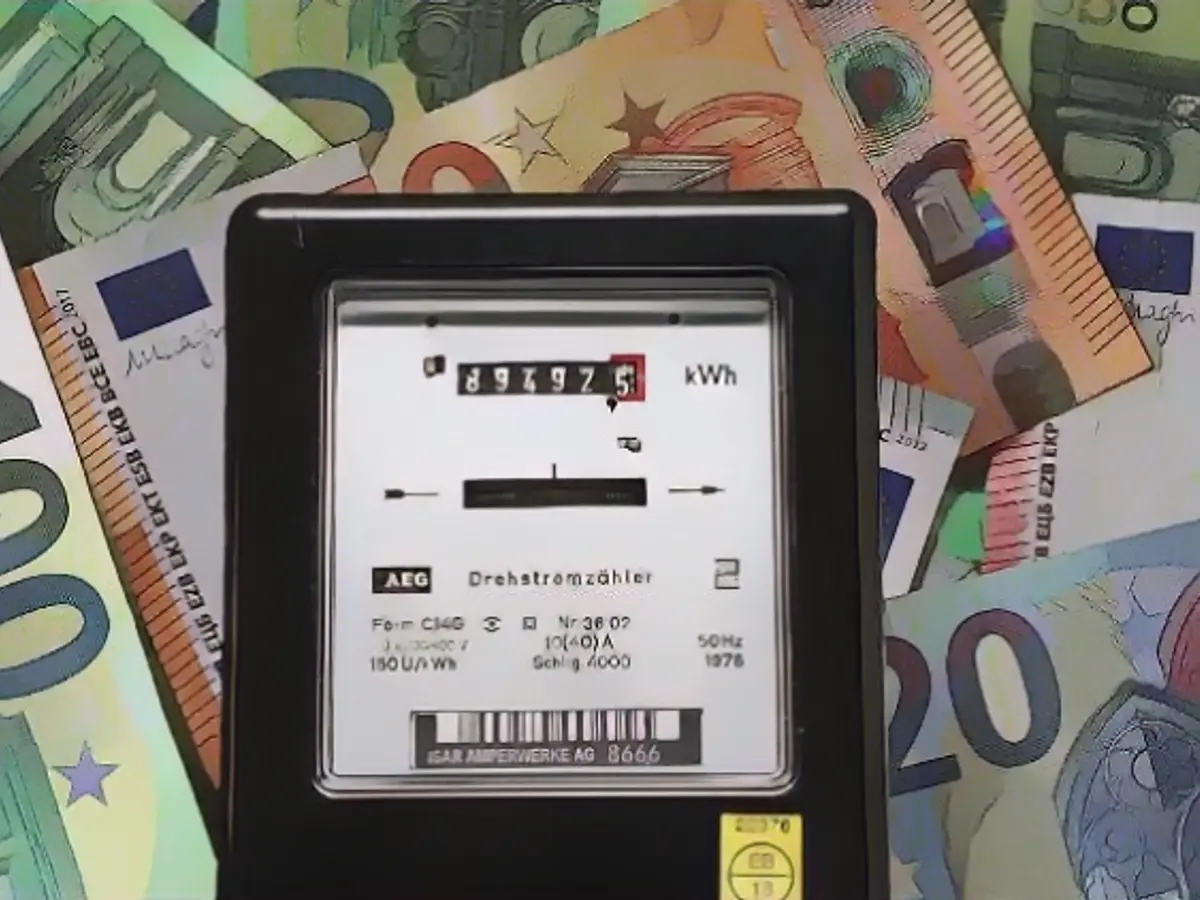Energy sector: electricity prices will rise
The energy sector will also be affected by the German government's planned austerity measures. If the subsidies already promised are withdrawn, there will be a domino effect. Consumers would then also have to pay more for energy, warns an industry representative.
The energy sector is warning of rising electricity prices in the wake of the budget crisis. Without a federal subsidy for transmission grid fees, end customer prices would rise significantly, said Kerstin Andreae, Chairwoman of the Executive Board of the German Association of Energy and Water Industries (BDEW). "An affordable electricity supply is of great importance, especially in times of uncertainty - also from a socio-political perspective."
The BDEW is appealing not to question the subsidy, but to leave it in place and secure funding as quickly as possible. Specifically, this concerns a federal subsidy of up to 5.5 billion euros planned for the coming year to proportionally finance the transmission grid costs. The money was to come from the Economic Stabilization Fund (WSF) - however, as a result of the budget ruling by the Federal Constitutional Court, the federal government will have to dissolve this special fund at the end of the year. The money for the subsidy would therefore now have to come from the core budget. But this is likely to be difficult. The federal government has to plug a hole of 17 billion euros.
The WSF is also used to finance the state energy price brakes, which expire at the end of the year and not at the end of March as originally planned. Federal Chancellor Olaf Scholz had said in the Bundestag that electricity and gas tariffs were now available again throughout Germany that were significantly higher than before the crisis - but mostly below the upper limits of the price brakes and also noticeably below the prices last fall and winter. Should energy prices nevertheless rise dramatically again unexpectedly, the German government would be able to take countermeasures at short notice at any time.
Association warns of domino effect
"Due to the effects of the energy crisis, electricity prices are still significantly higher than in the past," said Andreae. "It was therefore absolutely right of the Bundestag to cap the transmission grid fees and thus curb end customer prices." After the extreme increases in energy prices last year, it is now important to signal consistency and reliability to customers. "If the subsidy were to be discontinued, this would also trigger a domino effect for companies at various stages of the energy industry's value chain: If the transmission grid fees rise, the distribution grid operators will also have to increase their fees," said Andreae. "In turn, energy suppliers will have to include the overall increase in grid fees in their price calculations and adjust prices that have already been announced. Due to the legal deadlines, this would no longer be possible by January 1, 2024, but would have to be done as soon as possible." The grid fees are a component of the electricity price.
If the federal subsidy for the fees for the transmission grids - the electricity highways - were to be abolished, the comparison portal Verivox calculates that a family with an electricity consumption of 4,000 kilowatt hours would incur additional annual costs of around 100 euros. The green electricity provider LichtBlick even expects an additional burden of almost 170 euros for a household with an annual consumption of 4000 kilowatt hours if the federal subsidy is abolished. The gross electricity costs would rise by 4.15 cents per kilowatt hour. The promised subsidization of transmission grid fees, which the electricity grid operators have already factored into their grid fees, must be maintained.
The German Chemical Industry Association (VCI) also expressed its alarm. "The electricity prices in Germany are already a massive competitive disadvantage," said VCI Managing Director Wolfgang Große Entrup on Friday. "We have been fighting for months for relief." It is "completely ignorant" if the planned federal subsidies to stabilize grid fees are cancelled and there is a threat of these costs doubling for all electricity consumers. In the event of electricity price increases, the transformation to climate neutrality would be further jeopardized.
Lesen Sie auch:
- Grocery store prices won't be dropping anytime soon
- Swiss court rules in favor of Lindt and orders Lidl to destroy its chocolate bunnies
- A new genetically modified purple tomato may be coming to the food market
The energy industry's budgetary policy is under strain due to the potential withdrawal of subsidies, leading to concerns about the impact on power grids and electricity prices. A suspension of the federal subsidy for transmission grid fees could result in consumers paying significantly more for electricity, according to Kerstin Andreae of the BDEW.
Source: www.ntv.de








